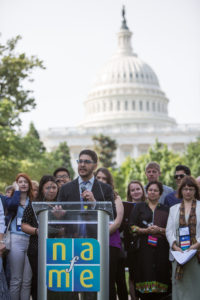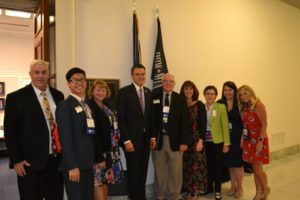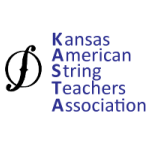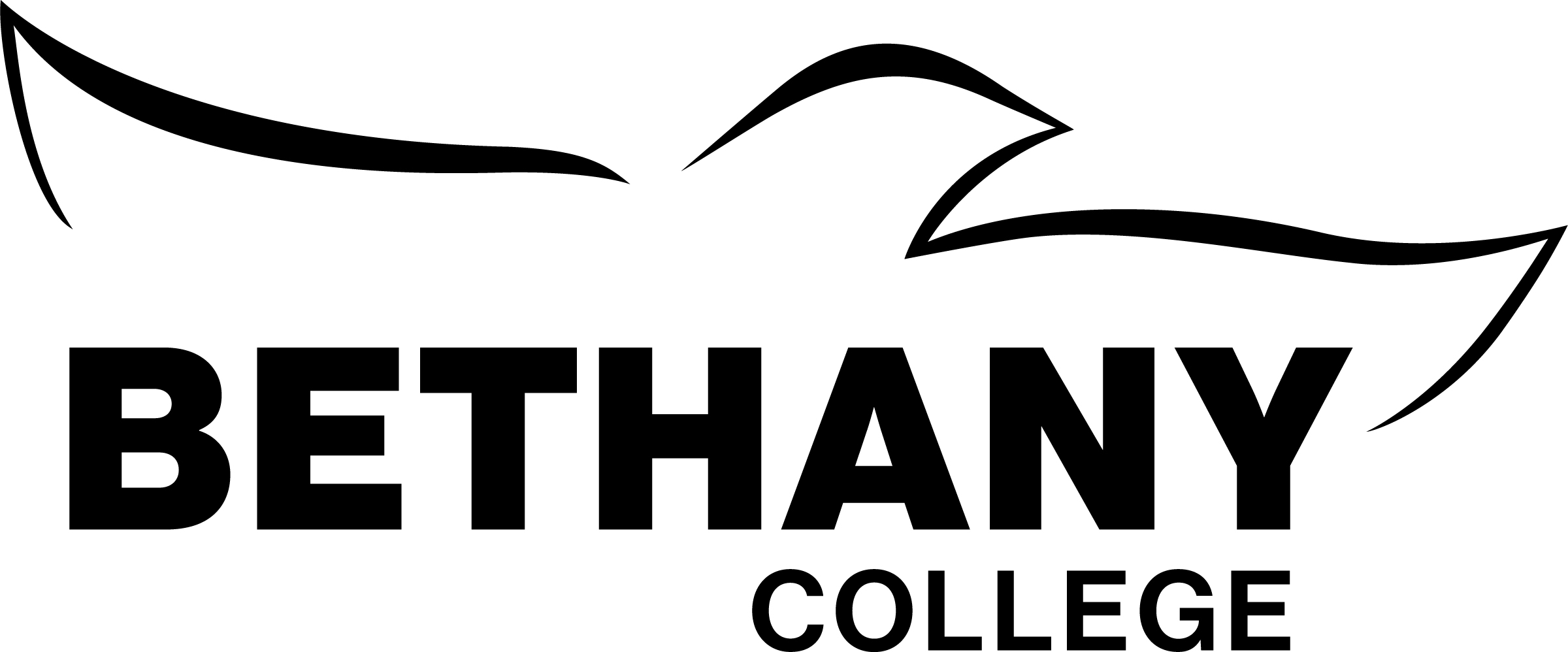
This summer, the leaders of KMEA joined more than 300 music educators to meet with their members of Congress as part of the NAfME Hill Day 2017. This event was held in conjunction with the NAfME Collegiate Advocacy Summit and the annual NAfME National Assembly. The KMEA members included President Gretchen Bixler, President-elect Gae Phillips, Vice President Martha Gable, Collegiate President Panye Amphone, Executive Director John Taylor and Government Relations Mike Quilling. Our delegation was honored to be joined by Tiffany Kerns and Mary Overend from the Country Music Association (CMA) Foundation who spoke with legislators about the importance of music in our schools.
Our early morning arrival on Capitol Hill began with music. The Barbershop Harmony Society provided two barbershop quartets as entertainment for the gathering groups followed by a collective sing-along of our National Anthem, My Country ‘Tis of Thee, and America the Beautiful. The leaders at NAfME said, “it’s appropriate as music educators that we bring music to our nation’s capital.” Following the last note of music and motivational speeches by the NAfME staff, the music leaders scattered across Capitol Hill to deliver one unified message to our legislators: Full Funding of the Every Student Succeeds Act (ESSA).

On December 15, 2015 Congress passed a new version of the 1965 Elementary and Secondary Education Act (ESEA) entitled the Every Student Succeeds Act (ESSA), which essentially replaced the previous No Child Left Behind Act (NCLB) of 2002. Music leaders across the nation celebrated the passage of ESSA because it specifically listed music as part of a “well-rounded education”, which provides access to federal funding for music education. ESSA also provided states more flexibility to develop accountability measures in assessing school performance and discouraged removing students from the classroom for remedial instruction, better known as “pull-outs”.
While NAfME continues to hail ESSA as a milestone in music education, they’ve quickly reset their focus on helping state MEA’s develop their state plans for ESSA and insuring federal funds are available. Since the President’s FY 2018 Budget include the elimination of funding for Title II ($2.056 billion) and Title IV ($400 million), both NAfME and the KMEA leadership agreed that ESSA funding would be the main topic of our meetings with legislators and their staff. During each meeting, KMEA President Gretchen Bixler asked our Kansas leaders to support access to music education for the disadvantaged students by “fully funding at the authorized level” Title I, Part A (Support for Basic Programs); Title II, Part A (Professional Development); and Title IV, Part A (Student Support and Academic Enrichment Grants – SSAEG). President Bixler also expressed our concern that any restriction or reduction to the federal funding of ESSA, including the $60 million cut in the President’s budget, would exacerbate our state’s current school funding difficulties and add to the increasing shortage of music educators in our Kansas schools.
Tiffany and Mary (CMA) provided another perspective to our discussions, highlighting the positive impact that music education has in the country music world. Tiffany said that CMA Foundation enjoys “shining a spotlight” on organizations and teachers enriching the lives of students through the power of music. She shared the news that the CMA Foundation named Salina music teacher, Matt Gerry, a 2017 CMA Music Teacher of Excellence. In addition, the CMA Foundation, along with Give a Note Foundation, awarded Salina South Middle School $5,000 which will be used for the school’s guitar program with goal of reaching more students through music.

The remainder of our meetings were spent talking about KMEA as an organization, including our collaboration with the Kansas State Department of Education revising the Kansas Music Standards and the addition of KMEA as a member of the ESEA Advisory Council. The NAfME Collegiate President for Kansas, Panye Amphone, spoke about the professional development opportunities that KMEA provides for college music students. He also expressed his concern that fewer students are choosing music education as their career. Legislators were presented documents showing the number of students enrolled in teacher prep programs in Kansas was nearly 2,500 lower in 2015 than 2011 and that Kansas has the lowest rural instructional salary per FTE in the nation. The salary information was obtained from a recently released report from Rural School and Community Trust entitled Why Rural Matters 2015-2016 which reported Kansas was nearly $17,000 below the national average.
The NAfME Hill Day 2017 was an opportunity to reconnect with our Kansas legislators and inform them of the issues facing our members. Most of them remain uncommitted towards our funding request, but did express concern with the President’s budget proposal eliminating all Title II and Title IV funding. They expressed support for music education and several staff members shared stories of their experiences in music.
It’s always hard to measure the impact our meetings have on legislators or their staff. We ask ourselves, “did we make a difference?” Perhaps a well-known quote from Mahatma Gandhi best answers that question; “You may never know what results come from your action. But if you do nothing, there will be no result.”
Pictured from left to right; Mike Quilling, Panye Amphone, Gretchen Bixler, Kansas Congressman Kevin Yoder, Martha Gable, Gae Phillips, Mary Overend and Tiffany Kerns (Country Music Association)
NAfME Chief Operating Officer, Chris Woodside motivates State MEA leaders and collegiate advocates prior to beginning NAfME Hill Day 2017.


















